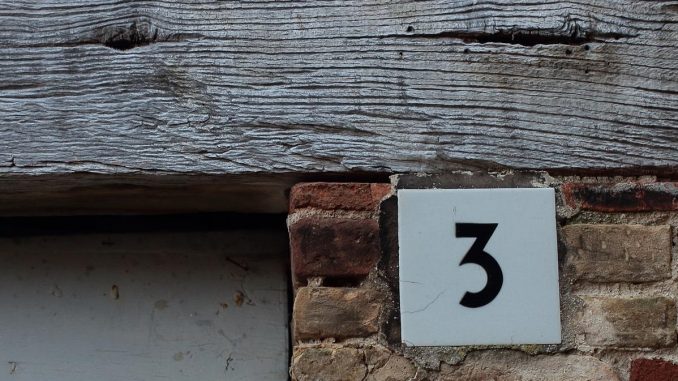
As many as 80% of Americans, or roughly 270,000,000 people, are living at the incorrect street address or house number according to a new report by the US Department of Housing and Urban Development. The report was ordered when discrepancies in house numbers were discovered during a rezoning of Philadelphia’s historic Old City neighborhood.
“At some point, whoever was responsible for assigning and recording the addresses in this historic neighborhood, the founding of which predates our country’s by around 74 years, simply skipped three numbers,” said Darrin Mathers of the Philadelphia Department of Licenses and Inspections.
Investigators are as yet unsure if the ‘address gap’ served a logical purpose in the city layout of our forbears, or if it is simply an error gone uncorrected for over three hundred years.
“Regardless, most of the country’s neighborhood zones were built off of Old City,” said Mathers. “That means most people’s houses are three numbers off from where they ought to be.”
“I feel cheated,” says Marianne Robison of DeKalb County, GA. “My whole life I thought I grew up at 744 N. Fairfield Drive, when in reality I should have been at 747. We’re right at the edge of the school district line, and I wonder how much different my life could have been if my address was 747 and I’d got a different education.”
Robison’s stunned reaction mirrors that of many throughout the nation, whose lives are “…effectively on hold until this gets sorted out.” For some, the implications are much more direct.
Two-time failed candidate Andre Kahlman (R) of Wisconsin’s fourth congressional district wonders whether the inaccurate house numbering might have irreparably stalled his political career. “If everything were to shift like that, three houses over, what we’d see on the ground in Wisconsin is a kind of reshuffling of political zones, which would place more Republican voters in the fourth and create a much more right-leaning population there,” said Kahlman. “Who knows what our representation on the Hill would look like, were that to take place,” he added.
“Ultimately the question is, ‘what do we do now?’” says Marcus Kandel, professor emeritus of urban studies at Cornell.
The university, which happens to exist within one of the few populous areas in the US not effected by the findings in Philadelphia, held a town hall discussion and ‘meeting of the minds’ to address the socio-economic and cultural implications of what has already been dubbed #HouseGate2017 in the Twittersphere.
“The people of this country do not take kindly to being misled, especially at a time like this with so much turmoil and political upheaval going on,” said Mandel. “People want consistency, they want absolutes. This does not bode well for the population’s continued trust in, and cooperation with, governmental institutions as a whole.”